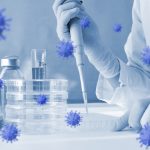More evidence of COVID shot harm: FDA has known about vax shedding for years
 (NaturalHealth365) When anecdotal reports started coming out about women experiencing unusual menstrual changes after being around recently vaxxed people, some concerns were raised about the possibility that these COVID shots were shedding.
(NaturalHealth365) When anecdotal reports started coming out about women experiencing unusual menstrual changes after being around recently vaxxed people, some concerns were raised about the possibility that these COVID shots were shedding.
Public health officials repeatedly reassure the public that these jabs cannot be shed since they do not contain any live or weakened version of SARS-CoV-2. But the shedding phenomenon has long been on public health radar, and given how “rapidly evolving” the pandemic and pandemic mitigation measures are, many have questioned just how confident we can be with these reassurances.
FDA issued Pharma industry guidance on shedding studies for viral gene therapy products 7 years ago
According to the U.S. Centers for Disease Control and Prevention (CDC), vax shedding “is the release or discharge of any of the vaccine components in or outside of the body and can only occur when a vaccine contains a live weakened version of the virus.”
While similar, the U.S. Food and Drug Administration’s definition of vax shedding is as follows: the transmission “of [virus or bacteria-based gene therapy products] VBGT or oncolytic products from the patient through one or all of the following ways: excreta (feces); secreta (urine, saliva, nasopharyngeal fluids, etc.); or through the skin (pustules, sores, wounds).”
While the words “weakened” or “live” do not appear anywhere in their definition, the FDA also clarifies in a footnote that transmission “could occur if the VGBT or oncolytic product is shed in the form of intact viruses or bacteria but not when shed as viral or bacterial degradation products such as nucleic acid fragments”(emphasis ours). By definition, nucleic acid fragments include mRNA contained within lipid nanoparticles found in COVID jabs. In other words, this claim from the FDA supports the idea that COVID shots cannot shed – which certainly is reassuring.
Interestingly, FDA wrote this definition in a 2015 Guidance for Industry document called “Design and Analysis of Shedding Studies for Virus or Bacteria-Based Gene Therapy and Oncolytic Products.” The goal of the document was to help researchers account for “the possibility that the shed VBGT or oncolytic product may be infectious,” which the FDA acknowledges “raises safety concerns related to the risk of transmission to untreated individuals.”
However, the FDA later states in the same document that an “underestimate of the level of shedding may also result due to degradation of viral or bacterial nucleic acids in enzyme-rich clinical samples such as feces and saliva during storage, handling/shipping and nucleic acid extraction.” This seems to go against their earlier footnote clarification and points to a possible method of shedding mRNA-based vaccines – which is something that Moderna and Pfizer are responsible for investigating as part of their research.
As for the COVID shots, Pfizer caused a stir when it noted in its trial documents that reports should be made whenever a pregnant woman is exposed to the vax “by inhalation or skin contact.” This is more likely referring to the possibility of exposure to a vax via a broken syringe or spilled vial, however, rather than from a vaccine already injected into someone else.
Even if Pfizer and Moderna shots don’t spread COVID-19, let’s not forget an important point – vaxxed individuals still can
In any case, let’s fast forward to 2020-2022. Plenty of people have pointed out that even if these COVID shots truly do not shed – and hopefully, public health officials are right about that – the fact that the COVID shots do not stop transmission of SARS-CoV-2 is a huge problem.
To reiterate why:
A vaxxed person who ends up getting infected with SARS-CoV-2 (which we know is no longer rare) can easily end up transmitting the virus to other people because they either are unaware they’re infected (asymptomatic infection), or they simply have a false sense of security. In this way, these leaky injections can technically contribute to viral shedding insofar as they don’t protect people from the virus.
And who knows? Someday soon, if Pharma has its way, it could be something other than viral particles being shed and spread from vaxes.
Researchers from around the world are currently investigating whether vaxes can be “self-disseminating” or “self-spreading.” In this sci-fi-like phenomenon, antibodies produced by an injected person could be transmitted to other people, leading to ethically suspicious herd immunity.
This obviously raises some glaring questions, namely: how could people opt in or out of getting “inoculated” by a vax they didn’t even get? And some critics now worry that Pharma executives and scientists are taking advantage of the COVID-19 pandemic to fast-track the path to these self-spreading drugs. Do you think this is an area of biomedical research that should be focused on so aggressively?
Sources for this article include:
Expose-news.com
Expose-news.com
CDC.gov
FDA.gov
APNews.com
Chop.edu
Science.org



